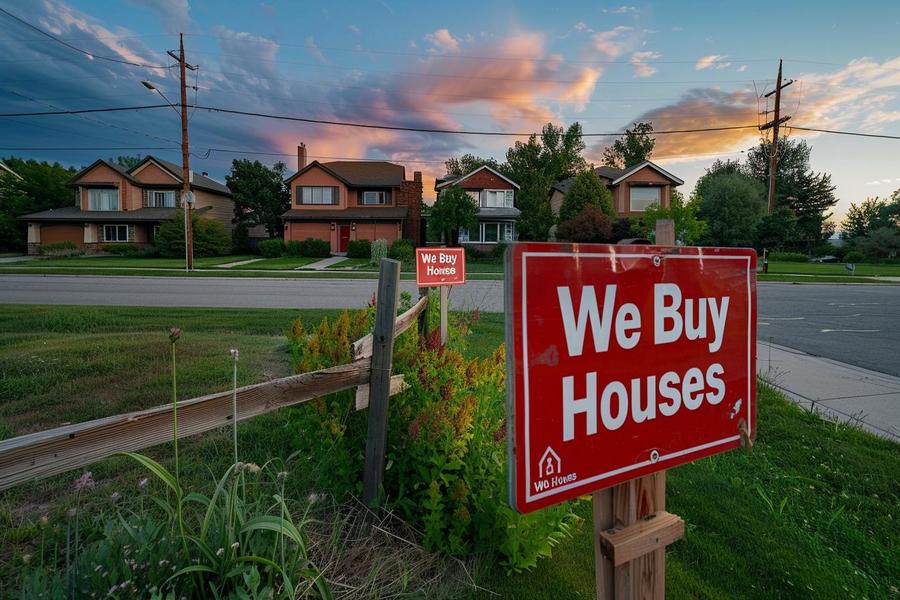Wondering how much equity you need before selling your home? It's a big question with a simple answer: more is always better. But how much is enough? This guide dives into what home equity is, why it matters, and how to figure out the right amount for selling. We'll show you how to calculate your equity, why it's key for a smooth sale, and ways to boost it before hitting the market. Let's unlock the secrets to making your home sale both profitable and hassle-free.
TL;DR:
- Home equity is crucial for knowing when to sell; aim for high equity for more options and profit.
- Calculate equity by subtracting mortgage from home’s current value; ideal is at least $10,000 or 15-20% of home's value.
- High equity helps cover selling costs and ensures cash for the next home down payment, avoiding private mortgage insurance.
- Boost equity through home improvements and refinancing to lower interest rates.
- Costs of selling include agent fees, repairs, closing costs which should be covered by home equity for financial ease.
- Best time to sell is when equity covers mortgage and moving costs, considering market conditions and consulting with an expert agent.
What is Home Equity and Why Does It Matter?
Home equity is what your house is worth minus what you owe. More equity means more profit when you sell. Knowing your home's equity helps decide if it's a good time to sell. You should check home equity regularly.
Your home equity can change with the market. It affects how much money you get after paying off the mortgage. High equity means more options for your next home or using money for other needs. Low equity might not cover all costs.
Understanding equity is crucial because it sets your next steps. If equity is low, you might wait or find ways to increase it. If high, selling could offer a financial boost. Always check your equity before making a decision to sell.
How Can You Calculate Your Home's Equity?
To find how much equity you have, start by knowing how much your home is worth today. You can check this on sites like housenumbers.io or ask a local estate agent. Subtract any money you still owe on your mortgage from this number. The rest is your home equity.
If your home value rises, your equity grows. Let’s say you bought your home for $200,000. Five years later, it’s worth $250,000. If you paid down $20,000 off your original mortgage, you now owe $180,000. Here, your equity is $250,000 minus $180,000. That means you have $70,000 in home equity.
This equity is key when you plan to sell. You need enough to cover the mortgage left and ideally, the cost of a new place. Today, a good rule is to have at least $10,000 or 15-20% of your home’s value in equity before you sell. This helps cover any selling costs too, like agent fees and moving.
Learn how to accurately calculate your home's equity for a better sale.
By freely using tools and knowing market trends, you can better understand when and how to sell. Always aim for high equity to gain enough from the sale to move forward easily.
Related Links:
What Amount of Equity is Advisable Before Selling Your Home?
You should know the equity you own before selling your house. To start, you should have enough equity to pay off the remaining mortgage. You also need funds for a 20% down payment on your next home. This ensures you avoid private mortgage insurance. Next, consider if you have more than the minimum equity needed. It can bring you significant benefits.
High equity makes it easier to handle selling costs. These include realtor fees and moving expenses. It also helps you have cash left over after the sale. This extra cash can be used to pay off debts or invest.
Each neighborhood has different trends affecting this decision. For example, selling in places like Denver or Nashville might be faster due to their hot markets. In such areas, having high equity when you sell can mean a bigger profit. If markets are slower, like in some parts of Houston, waiting until your equity builds might be a better choice.
Before making a decision, consider market conditions and personal readiness. Emotional aspects, like being ready to move from a loved family home, matter too. Don't forget to connect with a skilled real estate agent who understands local trends well. They can provide guidance tailored to your situation, ensuring the best results.
In summary, check your financial and emotional preparedness before deciding. Aim for more equity than just the bare minimum to cover costs and gain from your investment. Choose your timing by observing local market trends and consulting professionals. This strategy helps maximize your benefits from the sale of your home.
Strategies to Increase Your Home Equity Before Selling
To boost your home equity, focus on home improvements first. They can greatly add to your home's value. Select updates that give the most value for each dollar spent. This includes remodeling kitchens or bathrooms. The role of mortgage payments is simple. More of each payment goes to the principal amount over time. This builds your home equity bit by bit.
Consider refinancing if you feel your interest rates are high. Refinancing into a lower rate can lessen your monthly payments. Less going to interest means more for paying off the principal balance. This builds your home equity faster.
These tactics require wise choices and awareness of your local market trends in cities like San Francisco or neighborhoods in Brooklyn. Choose upgrades that fit your area's buyer expectations. This can lead to the best increase in home value, optimizing your return when selling.
The Costs Associated With Selling Your Home and Equity's Role
When I guide folks in selling their home, I always stress understanding costs first. You might wonder, what costs come with selling a home? Things like agent fees, repairs, and closing costs all add up. Now, how does equity fit into this? It's pretty simple. The equity in your home can help cover these costs.
So, how much equity should you have? I tell my clients to aim for enough to pay off their current mortgage. Plus, it's great if you can put down 20% on your next home. We call this planning for your net proceeds. It means you calculate your profits after paying off the mortgage and other selling costs.
Let's say you live in a bustling city like Denver. Here, homes might sell for more than in rural areas. More city sales mean you could have bigger costs but potentially more profit too.
Now, managing your equity is key here. It means keeping track of how much money you can actually see from the sale after all the expenses. We term this "utilizing home equity in a sale." You want to make sure you're not at a loss after the move.
Why is this planning stage so crucial? Because it sets you up financially for your next move. Whether that's buying a bigger home or downsizing, how you manage now impacts your choices later.
Overall, selling your home isn't just about closing a deal; it's about making smart financial decisions that benefit your future. This is why I love helping folks get the most out of their home sales. It's not just a transaction; it's a stepping stone to your next big adventure in life.
When is the Best Time to Sell Based on Your Home's Equity?
The best time to sell is when home equity covers the mortgage and moving costs. First, check your home's equity. It plays a big part in your decision to sell. High equity means more money for your next house. Assess market conditions and trends. A low-inventory, high-demand market raises home values and your equity.
Your financial state matters too. Ensure selling improves your situation. Cover all costs, and aim for a profit for your next purchase. Aim for 20% equity at least. This avoids extra fees and eases the mortgage process on your new home. Neighborhood trends are important. Know what homes around you sell for. Speak to an expert agent. They guide you through pricing and timing based on local demand.
This post showed you how home equity works and why it matters when selling. We explored calculating your equity, the best amount to have before a sale, how to boost it, and the costs involved. Finally, we discussed the optimal time to sell based on equity. Remember, understanding and leveraging your home's equity can lead to a smarter, more profitable sale. Keep these tips in mind to make informed decisions and maximize your financial gains when it's time to sell.














